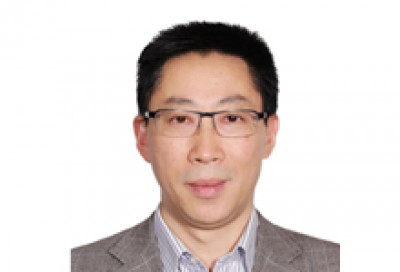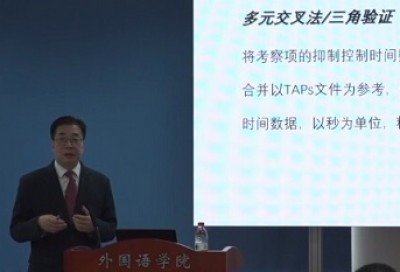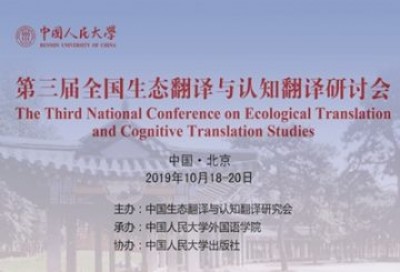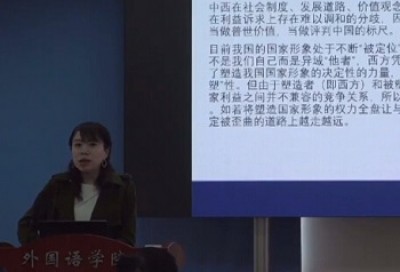Translation by Simulation: Evidence and Hypothesis from Chinese/English Translation Data – 林子予
人工智能时代口译技术应用研究
王华树 | 国内首部聚焦口译技术应用和教学的著作
新书推荐
口笔译教育与评价国际论坛 二号公告
在厦门大学百年校庆之际,邀您齐聚厦门、共襄盛举
论坛推荐
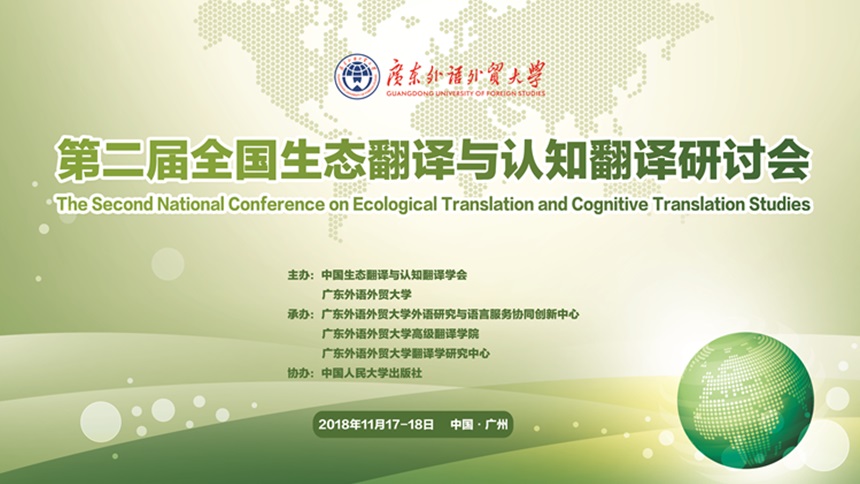
Translation by Simulation: Evidence and Hypothesis from Chinese/English Translation Data - 林子予
Translation by Simulation — Evidence and Hypothesis from Chinese/English
Translation Data
林子予 澳门理工学院
Based on the English translations of two classical Chinese poems: the first being Wang Wei’s 鹿柴 (lu zhai), and the second, Ma Zhiyuan’s 天净沙·秋思 ( tian jìng sha · qiu si), and assisted by a detailed analysis of the big data retrieved from the Chinese/English parallel corpora, as exemplified by the Chinese term 明白 (ming bai) and its English equivalents, and the English phrase “be going to” and its Chinese equivalents, this presentation gleans and presents evidence for the argument that variations and multiplicities in Chinese/English translation can be systematically motivated by the operations of such cognitive devices as metonymic chains, salience recognition, iconicity representation, schematicity and elaborations, semantic frame accessing, and mental space blending. Collectively, they contribute to mental simulation, which refers to the mental construction of perception and action without actually seeing or acting, a human cognitive ability that is often discussed together with the theory of embodiment, That is, our minds are affected and shaped by our bodies and life experiences.
Along this line of argument, translation processes can be considered as being heavily manipulated by translators’ mental simulations, which is consistent to the simulation semantics theories for language comprehension and concept processing. The translation results reflect the outcome of a two-stage procedure: simulation generation and simulation restoration. Specifically, from the source language and culture, a translator derives his mental simulation, which, nevertheless, is conditioned by numerous influencing factors, ranging, for example, from the mundane daily life to different abilities in language use and intercultural communication, the higher level of which can only be achieved through many variables, such as personal efforts, education, and opportunities of cross-cultural exposures. On the other hand, when the translator represents or restores his simulations in the target language and culture, the translation he produces is also conditioned by those constraining factors. For this reason, simulations grounded on the source language input and those presented in the target language output are highly individualized. This, among others, explains why identical translations of the same source text can be rarely found. The translation by simulation hypothesis opens up another theoretical paradigm in translation studies.
专家介绍:
Zi-yu Lin, Ph.D Director, MPI-Bell Centre of English, Professor, School of Languages and Translation, Macao Polytechnic Institute, MSAR. Member of International Federation of Translators (FIT) and Federation of Translators and Interpreters of Macao (FTIM).
Editorial Board Member and Manuscript Reviewer, Intercultural Communication Studies, the official journal of the International Association for Intercultural Communication Studies (2010-present). Editorial Board Member, Library and Information Service, The Chinese National Sciences Library of the Chinese Academy of Sciences (2014-Present). Associate Editor, Macao Language and Cultural Research, Macao Polytechnic Institute (2015-Present). His recent publications include: Lin, Zi-yu. (2018), Variations in Tang Poetry English Translation–A Cognitive Rationale. in Lei H. I. (Ed.), Macao Language and Culture Research (2017), Macao: Macao Polytechnic Institute, 292-309; Lin, Zi-yu. (2017), Mental Simulation and Translation. ICS Intercultural Communication Studies, Kingston, RI: International Association for Intercultural Communication Studies, XXVI: 2, 145-156. Referred.; Lin, Zi-yu. (2017), Chinese/English Parallel Corpora, Language Comprehension, and Abilities in Chinese/English Translation or Chinese as a Second Language. in Lei H. I. (Ed.), Macao Language and Culture Research (2016), Macao: Macao Polytechnic Institute, 376-395. Lei, Heong Iok, Cui, Mingfen, Lin, Zi-yu, 2018, International Chinese, Commercial Press (in press); Lin, Zi-yu, Radwanska-William, Joanna, Zhang, Yufeng, 2018, Lotus Field: Reflection, Macao: Macao Polytechnic Institute; Lei, Heong Iok, Zhou, Jian, Lin, Zi-yu. (Eds.), 2018, Macao Language and Culture Research, Macao: Macao Polytechnic Institute.
相关推荐
★★★★★ 5/5




